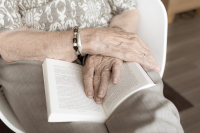Understanding the Unique Challenges
Women grappling with addiction often face complex social, psychological, and biological challenges. They are more likely to have histories of trauma, face societal stigma, and juggle multiple roles, all of which can complicate their addiction and recovery experiences. Recognizing these unique challenges is crucial in understanding the importance of specialized treatment.
The Power of Women-Specific Treatment Programs
Tailored Therapeutic Approaches
Women-specific programs provide a safe and understanding environment, allowing participants to address issues like trauma, self-esteem, and societal pressures in a supportive setting. These programs often use therapeutic approaches specifically designed for women, recognizing the role of trauma and mental health in their addiction.
Empowerment and Community
Such programs focus on empowerment, helping women regain control over their lives. They also foster a community, providing a space where women can connect with others who understand their unique experiences, offering support and accountability throughout their recovery journey.
Addressing Health and Psychological Needs
Recognizing the different ways substances affect women's bodies and minds is critical. Women-specific programs offer medical and psychological support tailored to these needs, ensuring a more effective and holistic approach to recovery.
Evidence Supporting Women-Specific Programs
Research underscores the effectiveness of gender-specific treatment, indicating better outcomes for women who participate in these programs compared to co-ed settings. They are more likely to complete the program and maintain sobriety long-term, highlighting the importance of tailored treatment approaches.
Choosing the Right Women's Drug Rehab
Selecting a women's drug rehab is about finding a program that understands and addresses the unique challenges women face in addiction and recovery. It's crucial to choose a rehab that not only provides medical and psychological support but also understands the power of community and tailored treatment.
Conclusion
Women-specific treatment programs are more than just an alternative to traditional rehab; they are a vital and powerful approach to addressing the unique needs of women in recovery. By providing tailored support, understanding the complex challenges women face, and fostering a sense of community and empowerment, these programs play a crucial role in enabling successful recoveries. For those seeking more information or support, resources like the National Institute on Drug Abuse and the Substance Abuse and Mental Health Services Administration offer valuable insights and guidance on women-specific treatment options.















